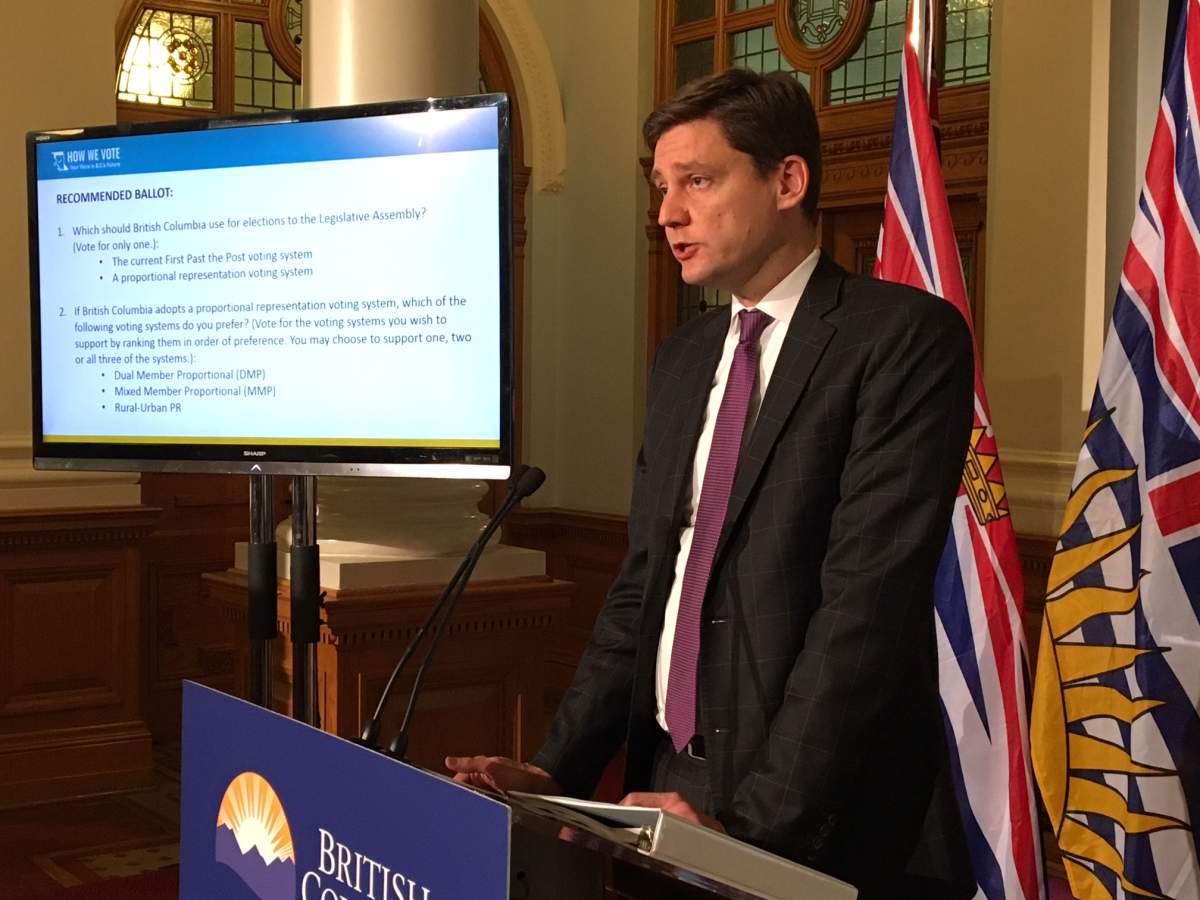The B.C. Government will require British Columbians to vote again if the electoral system changes following this fall’s referendum.

Attorney General David Eby introduced legislation on Tuesday that, if passed, will mean a confirming referendum would take place after two elections under a proportional representation electoral system.
“It will be up to British Columbians to decide whether to change our province’s voting system, and it should also be up to British Columbians to decide whether to keep a new voting system after they’ve tried it,” said Eby. “By legislating a confirming referendum after two general election cycles, our government is giving voters a safety valve to revert to the previous voting system after an opportunity to actually experience both systems.”
The 2018 referendum will be conducted by mail-in ballot and the voting period will run from Oct. 22, 2018, to Nov. 30, 2018.

Get breaking National news
The questions are:
- Which should British Columbia use for elections to the Legislative Assembly?
- The current First Past the Post voting system
- A proportional representation voting system
- If British Columbia adopts a proportional representation voting system, which of the following voting systems do you prefer?
- Dual Member Proportional (DMP)
- Mixed Member Proportional (MMP)
- Rural-Urban PR
The rational behind a second referendum is that voters could compare whether they like the PR system or the First Past the Post voting system after experiencing both.
“This confirming referendum would allow British Columbians, not politicians, to have the final say on the voting system,” said Eby. “If, during either referendum, voters decide that the current system is preferred, the government of B.C. will be bound by law to respect that decision.”
The second referendum would have to take place within 13 months of the second provincial general election under the chosen proportional representation voting system. For example, if scheduled general elections occur in October 2021 and October 2025, the confirming referendum would occur by Nov. 30, 2026.








Comments
Want to discuss? Please read our Commenting Policy first.